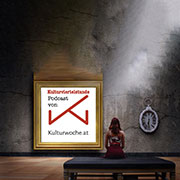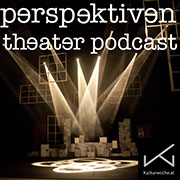Adam Green gastierte am 5.11.2019 im Wiener Flex. Vor dem Konzert gab der Anti-Folk Musiker aus Brooklyn (NYC) ein ausführliches Interview.
"Oida, pass auf Hawara!", tönt es nun schon zum wiederholten Male durch das Publikum. Das Flex in Wien ist am 5.11.2019 ausverkauft, die Halle ist voll und es wird auf Zehen gestiegen, Schultern werden angerempelt und Bier verschüttet. Manche Besucher machen aus ihrem Unmut darüber keinen Hehl und werden zunehmend aggressiv. Als Adam Green - der Anti-Folk Musiker aus Brooklyn, NYC - dann aber wenig später auf die Bühne kommt, ist davon nichts mehr zu merken. Plötzlich scheinen sich alle wieder gern zu haben, was womöglich an dem Nebel der Nostalgie liegt, der sich über das Publikum legt. Adam Green beginnt das Konzert mit dem Song "Cigarette Burns Forever" und schon geht es los, "ma, weißt noch, damals?", und man erinnert sich an Nächte, in denen man zu "Dance With Me" im B72 tanzte, wie sich das angefühlt hat, damals, dieses Indie, als man plötzlich Teil dieser Subkultur war, sich libertine auf den Unterarm tätowieren wollte und man Julian Casablancas Schlafzimmerblick in endlosen YouTube-Loopholes verfiel. Die gesamte Setlist von Adam Greens Konzert im Flex wirkt wie eine Hommage an diese Zeit, das Publikum ist textsicher, es trägt den ganzen Song "Jessica" alleine, und auch in das mit voller Absicht cheesy gehaltene Bangles- Cover von "Eternal Flame" stimmen alle unaufgefordert und euphorisch mit ein.
Adam Green erzählt auf der Bühne wie er den Tag in Wien verbracht hat, von den Museen, die er besucht hat, von der Kellnerin, die auf seine Frage, was denn der Unterschied zwischen einem Cappuccino und einer Melange wäre, lapidar antwortete, dass der einzige Unterschied wäre, dass letztere teurer sei. Er erzählt von seiner zeitgleich mit seinem neuen Album "Engine of Paradise" erschienenen Graphic Novel "War and Paradise", deren gedruckte Exemplare alle schon ausverkauft sind. Auf seiner Website stünde sie jedoch nach wie vor gratis zum Download zu Verfügung. Es ist nicht das erste Mal, dass Adam Green seine Kunst gratis mit seinen Fans teilt, schon seine beiden selbstgedrehten Filme "Aladdin" (2006) und "The Wrong Ferrari" (2011) konnte man sich gratis im Internet ansehen.
Interview mit Adam Green am Ufer des Donaukanals
Ein paar Stunden bevor Adam Green über seine Graphic Novel auf der Bühne spricht, sitze ich mit ihm am Ufer des Donaukanals und frage ihn, ob er etwas an dieser Gratis-Kultur, die speziell heutzutage oft mit Kunst einhergeht, auch problematisch findet; ob er findet, dass die Arbeit des Künstlers dadurch möglicherweise symbolisch entwertet wird. Ein wenig, ja, meint er.
But when you make art work, you want people to be able to engage with it as much as possible. I want people to have the chance to read it or see it.
"I give you an example: When the Aladdin movie came out on iTunes it was for sale for the first two months. It was also on Amazon. And I think it sold like maybe under 2000 copies, but when I put it online so that people could just watch it for free, almost a hundred thousand people watched it. As an artist you have to think 'Do I want 2000 people to watch the movie or do I want a hundred thousand to watch it?' For me it's better if a hundred thousand people watch it. It's not really an option for me to not distribute it in that way. And even for the book: I brought two hundred copies of the book on tour and sold them at my concerts and the show tonight in Vienna is my last show of the tour and the books are all gone. I didn't calculate the right amount. But I think a thousand people have downloaded it from the website. So two hundred people are going to read it, because they bought it and they'll have a really nice printed copy that is signed. And the other thousand people are going to read the book on their computer for free. But, of course, it could be a problem. I don't know if people think, that it's free to make it. Being an artist is almost non-profit. I don't think it's right… But sometimes people use my songs for a commercial or something and then they always have to pay for it. Or if you buy an original drawing, a painting of mine, then you have to buy the real thing."
Genauso sähe er Spotify nicht so problematisch, wie manch anderer Künstler. Immerhin bekäme er ein paar Tausend Dollar Tantiemen im Monat von der Streaming-Plattform, was ja schließlich nicht schlecht wäre. "Maybe they could give me more", überlegt er und lacht.
"But maybe it is not what it used to be. I think that it spreads music thin in a way, because there are so many songs that come out. It becomes more and more important for someone to curate lists, lists of new songs that came out. I'm an old person, you know. I think it was better when I was younger. I could put out records and got payed money for it. But this is just how the world is. I sort of just try to go with it and just try to enjoy my life. When you decide you want to be an artist, it's not like everybody will say "oh that's so cool, it's going to be such an easy life for you and you're going to make so much money". That's not what being an artist is about and it's not what happens. Also, in a touring situation for example: We're playing Flex tonight and it's the same situation as it was twenty years ago. Being a touring musician is almost like doing something that is kind of antiquated, an old-fashioned activity."
Adam Green zeigt auf den Tour-Van, der neben dem Backstage-Eingang geparkt ist.
"This is our caravan and we have a travelling puppet show. We turn off the lights and play the whole puppet show for everybody who pays for a ticket. It feels like an old-fashioned activity to be doing." Es stimmt, gewisse Sparten der Kunstwelt scheinen eine Anomalie zu bilden, in einer immer stärker von Digitalisierung und Automatisierung geprägten Gesellschaft.
Und auch, wenn Adam Green das Glück hat, in einer Branche tätig zu sein, die von dieser Entwicklung noch beinahe unangetastet ist, hat er dystopische Themen, wie die neue Übermacht der Technik, in sein neues Album und noch verstärkter, in seine Graphic Novel einfließen lassen.
"I think it is not unlikely that people will not have jobs in the near future. I just made a graphic novel and in my graphic novel that is what happens. It flipped from there being a 5 percent unemployment rate to a five percent employment rate. You could imagine this kind of thing. I think artificial intelligence is fusing with humanity and it is becoming a unified mixture. It feels too powerful to prevent it from happening. For me it is not a pleasant feeling to have AI fusing with me, that is why I try to spend more time with my friends and my family. But then at the same time it is going to be what it is. Eventually, not being actively engaged with everything that is online is going to make these people be on the fringe of society, they won't even be allowed enter a building, unless they were online. It's almost like playing a video game, but then the game gets faster and faster and faster and you have to click more stuff to stay on the game. And it keeps going faster and you don't have any time to concentrate. Again, I feel like I accept it, because... it is like that Yuval Harari [Israelischer Schriftsteller und Historiker, Anm.] book 'Homo Deus'. It is worth reading his books. He has a really vast, bird sight view of humanity. At the end of the book he says that there will come a point where humans will feel like dogs attending an opera. That will be the feeling of being alive. I already feel that way. I feel like a dog on a rollercoaster.
Obviously, people are possessed by technology and it appears to be completely parasitically running the show. It feels like AI is making all your decisions for you and you have to do what is suggested next. It comes up like a tarot card and what is next for you is the next algorithmic choice. It feels like it would be increasingly like that. With the modifying gene editing tools, it all starts to feel as if the body becomes more like a digital file, like a JPG. Something that can be edited and changed. Maybe one time you can reverse the aging process and make yourself have twenty boobs or whatever you want and then change it back. It's like nothings lasts. You have a contract with your heritage, a contract that says things are still going to be part of a line that has been created since the beginning of time. It feels as if we are born on the edge of a cliff and we are trying to hold on to a line that is leading back to the beginning of time. And now we are going over a cliff and there is no relationship to the heritage anymore. It is a transformation and nothing seems to be lasting. It feels like a whirlwind, very uncomfortable. And nobody knows what is right or wrong."
"Do you think that social media in particular is dangerous?", frage ich ihn.
"Absolutely, yeah. It is easy for me to criticize it though. I was born in 1981. But when you're younger, you're maybe just like 'Shut up, old people, this is my chance to get somewhere in my life! This is my fucking chance to get something for myself in this world.' Who am I to tell them that they are wrong? Maybe that is the only way for them to get out of their place, I don't know. But a lot of things seem nice about the way it was. Even just meeting people. You had a plan and you just met them at a place at that time and did your thing. When you'd have to meet somebody at 3:15 and then they would be late and you had to wait and just be like 'well, I guess I'll just see them later...'
Der Blick von Adam Green wird nun nachdenklich, beinahe traurig. Seine Augen schweifen über die Graffitis am Donaukanal und über uns krächzen die Möwen etwas lauter als zuvor, als würden sie in die Wehmut von Adam Green mit einstimmen.
"But in a way, there still must be these great moments that are inside the world that people have, regardless of the tornado of technology that is possessing them. People will find love in a way that they can. What is average will change. What is normal will change. But it is annoying for people who like old-fashioned things... romantic things. But maybe there is some of that in the new moments. Maybe that frequency is not totally dead."
Es ist leicht Adams Kulturpessimismus zu teilen, vor allem wenn man selbst noch der Generation angehört, die den Übergang von einer Welt ohne Smartphones in eine Welt mit Smartphones erlebt hat.
Später, als Adam Green mit seiner Band die Bühne des Flex betritt, kann man ein Phänomen beobachten, das mittlerweile auf Konzerten (und auch sonst) allgegenwärtig geworden ist. Innerhalb von Sekunden schießen da unzählige Handys in die Höhe, von denen ein paar die gesamten kommenden 70 Minuten in der Luft bleiben werden. Und auch wenn man den einen oder anderen "Handy runter!" Ruf vernimmt, lassen sich die meisten davon nicht beeindrucken und betrachten das Konzert weiterhin durch ihren Smartphone-Bildschirm und ihre Instagram-Story, die in 24 Stunden schon wieder verblasst sein wird. Aber wieder zurück zum Interview am Donaukanal.
Adam Green auf die Frage, ob er denn eher an Talent oder an Handwerk glaube, also, ob man mit einer Fähigkeit geboren wird, oder sie viel eher ein Produkt stundenlangen Übens ist:
"Well, some people have a knack for things. I have been writing for hours every day for twenty-five years. So I put more time into it than anyone that I know. But then, with other people, the first song that they ever wrote is awesome. It's a mixture of time spent, natural ability, luck and having inspiration. People say, if you go fishing every day, then you have more luck of catching something. If you stop looking, then you definitely won't catch something. But if you try to look every day for a song or something, then you get it. You need to keep it open. Like this medieval surgery, trepanning [Verfahren, bei dem ein Loch in den Schädel gebohrt wird; im Mittelalter u.a. angewendet, um dämonische Geister freizulassen, Anm.]. If you're a writer, you always need to get what it is in your brain into your hands and write it down. Hierbei sei Adam Green das Ergebnis der kreativen Arbeit genauso wichtig, wie der Prozess selbst, meint er, "If you just have a progress with no outcome, then you're going to go insane. It's like a machine that just spins yarn and it never stops, it's just progress. You need some outcome there. I need to know it is going somewhere. It is like writing a diary that is ten thousand pages long and it never stops, you'd go crazy. And sometimes I feel like that. But thank God, sometimes I finish something. I like it to be really high quality, but I am not a perfectionist."
Die Graphic Novel "War and Paradise" von Adam Green, deren Titel an Tolstois Roman "Krieg und Frieden" angelehnt ist, findet in seiner zweiten Hälfte in einer Art Jenseits statt. Glaubt er selbst denn an sowas wie ein Jenseits, ein Leben nach dem Tod?
 "I think I do, in a bigger sense. I think that the machine of mankind and humankind turns onward like a rowing wheel that gathers up flesh from the field as it turns. People have understood that the life that we have in our bodies is of a temporary nature. Having children makes you feel that. It is like a genetic time travel. When you have children, you go into somebody else and they continue to spin the wheel. This, for me, is reincarnation. I'd like to think that there is a more liberal definition and I am agnostic to whether it is the case. I don't think that you need to say "I need to keep my eyes and my haircut to be reincarnated", but doing songs and having them go through the ages and past your own life time even, that is like echoing into the spirit of time. Human time. I guess human time is the one I am concerned with, because I have a special affinity for people. But then, you know, in my book the blockchain is an organizing principle that has the world's information in a hard drive that goes to the end of time and when people die, they go through a hard drive to the end of time, where they'll meet god. If people were living in a video game now, then we could assume that they did in the medieval times, too. So, people may have always been in a video game. Even in the middle ages and gothic times, it was always a video game. It's all just one giant video game. That is my imagination. But that means that people in Neolithic periods were also in some kind of simulation, which is kind of fun.
"I think I do, in a bigger sense. I think that the machine of mankind and humankind turns onward like a rowing wheel that gathers up flesh from the field as it turns. People have understood that the life that we have in our bodies is of a temporary nature. Having children makes you feel that. It is like a genetic time travel. When you have children, you go into somebody else and they continue to spin the wheel. This, for me, is reincarnation. I'd like to think that there is a more liberal definition and I am agnostic to whether it is the case. I don't think that you need to say "I need to keep my eyes and my haircut to be reincarnated", but doing songs and having them go through the ages and past your own life time even, that is like echoing into the spirit of time. Human time. I guess human time is the one I am concerned with, because I have a special affinity for people. But then, you know, in my book the blockchain is an organizing principle that has the world's information in a hard drive that goes to the end of time and when people die, they go through a hard drive to the end of time, where they'll meet god. If people were living in a video game now, then we could assume that they did in the medieval times, too. So, people may have always been in a video game. Even in the middle ages and gothic times, it was always a video game. It's all just one giant video game. That is my imagination. But that means that people in Neolithic periods were also in some kind of simulation, which is kind of fun.
That's what's good about doing things like this, there is so much community in doing a concert for people. This is my 15th concert or so here in Vienna, so for like two hours in my life I don't have to question the meaning of the world, because I just have to sing for people and have them enjoy that kind of thing, have them fade into a dream, a dreamworld of music. And maybe that makes them feel better about the storm that is out there." //
Interview: Christina Masarei
Foto: Adam Green
Free Download Graphic Novel "War and Paradise" von Adam Green

HIER KANNST DU ENGINE OF PARADISE VON ADAM GREEN KAUFEN.












